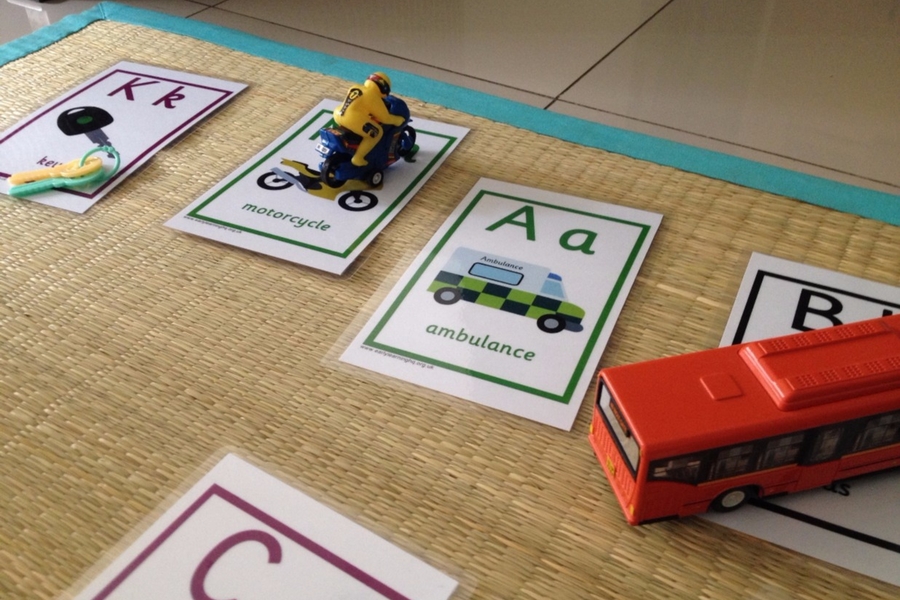
Why learning the Alphabet needs to be more fun and engaging?
16 Mar 2016 | 4 min Read
Amruta Ramsubramaniam
Author | 37 Articles
When my son turned 3, he suddenly started showing a lot of interest in learning letters.
I follow a lot of Montessori / Montessori-inspired principles in our early learning journey at home and I wanted to make sure that I follow my child and create an environment that will help him explore and learn in a playful yet creative way! And hence I started presenting to him one letter a week – with hands-on works (that is a term used in Montessori for an ‘activity’).
Before we kick-start the Letter of the Week Series, I just want to give you a quick lowdown on the importance of language as a subject, and when is the right age to introduce alphabets to the children.
A child as young as 12 months old can babble and even speak a few words. And the wonderful part is he starts talking even before we formally teach him any letters. What that tells us is that the child’s mind is like a sponge and is so absorbent – that he picks up his mother tongue or whichever language you introduce him to in no time. We often don’t understand how capable these little beings are.
One of the most important tool in the child’s language development is introducing the child to books from a very early age (can be right from the birth!). You can read aloud board books, story books, fiction, non-fiction, or even a paragraph from a poetry book! The list is endless.
It is so important as a parent or the caregiver to help the child build self-confidence through providing him opportunities to explore the world – this can be done through books, outdoor play, involvement in household chores (life skills), having a mindful conversation with the child (read: minus our phones and tablets) and other meaningful activities. And this is the best way to help the child develop his language – through seeing, hearing, feeling and touching! These I like to call pre-reading exercises. And you can start this from an early age, instead of rote learning (A is for apple, B is for ball etc).
So when can I start introducing alphabets to my child?
Ideally, 3+ is a good age to introduce letters – again take it slow, one step at a time and keep it child led, meaning if your child isn’t showing interest, hold on and re-introduce after few months.
Since we follow Montessori, we started off with letter sounds of lowercase letters first. We started this in print. (Montessori recommends cursive first though).
Talking about language as a whole (not rote learning) the child can learn his language effortlessly and without fatigue from the ages 0-6 years. After the age of six, when the sensitive period has passed, it becomes much more difficult for the child to learn to read and write.
Importance of language:
According to Dr Maria Montessori, children are able to absorb language from their environment and easily learn how to speak, read and write if language in its various forms is present in their environment during the period of the Absorbent Mind (this is also called as the sensitive period, where the child is most eager to learn a particular skill).
The quality and quantity of language a child is exposed to during the sensitive period directly affects his language skills. For this simple reason, it is often suggested that the parents should talk to their children often giving them a multitude of vocabulary. Also it really helps if we enrich their childhood with books and association through real life objects!
Also read more about: Letter A, Letter B, Letter C, Letter D, Letter E, Letter F, Letter G, Letter H, Letter I,Letter J, Letter K, Letter L, Letter M, Letter N, Letter O
Explore the entire collection of articles:Learning The Alphabet
If you are reading this article on our website and have an Android phone, please download our APP here for a more personalised experience based on your lifestage.
A


Suggestions offered by doctors on BabyChakra are of advisory nature i.e., for educational and informational purposes only. Content posted on, created for, or compiled by BabyChakra is not intended or designed to replace your doctor's independent judgment about any symptom, condition, or the appropriateness or risks of a procedure or treatment for a given person.
